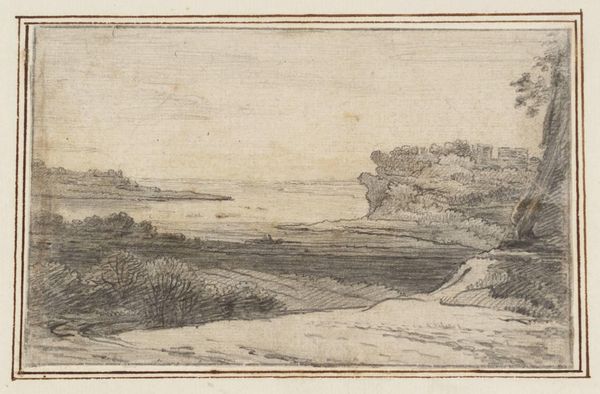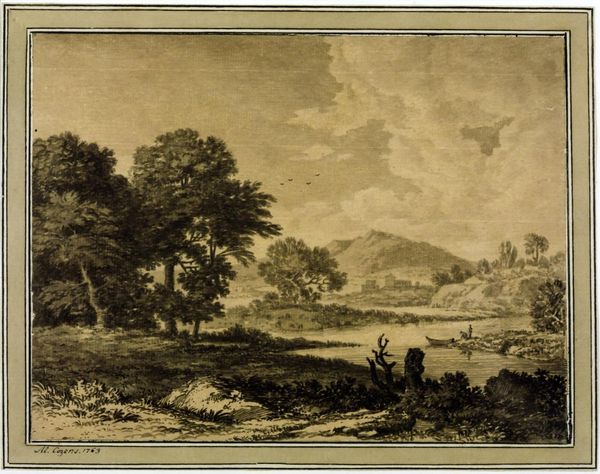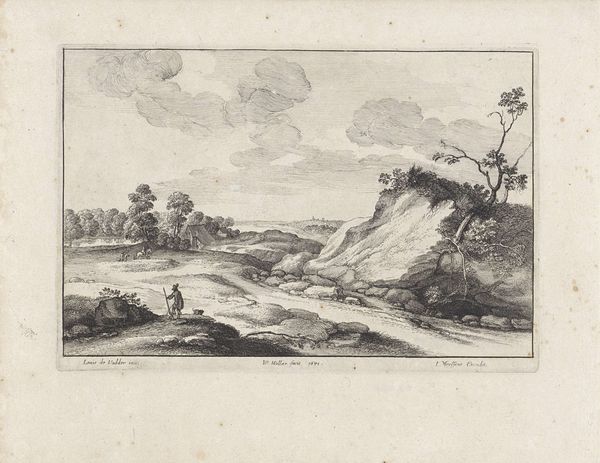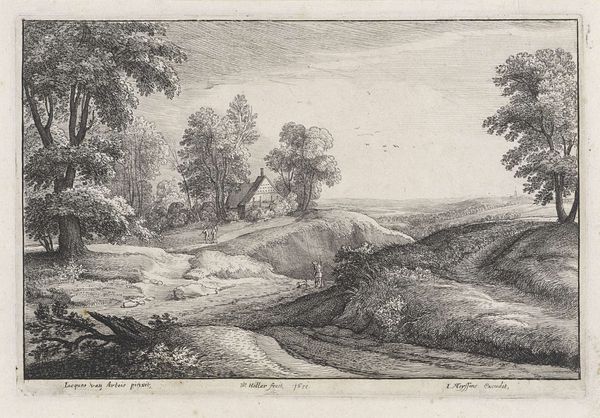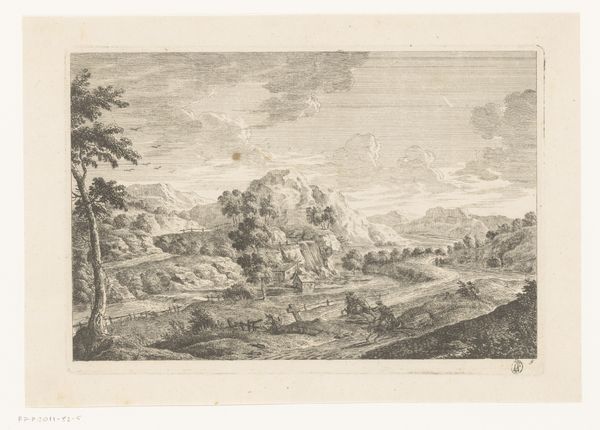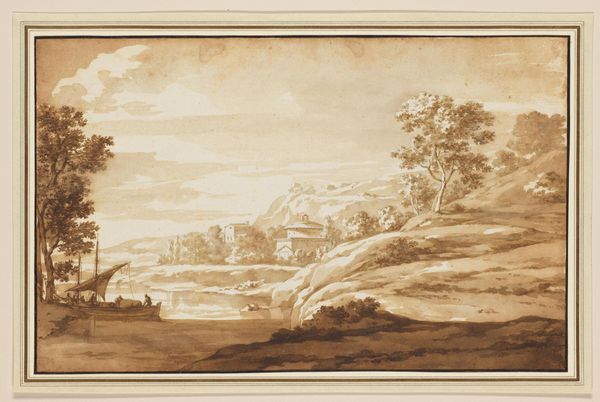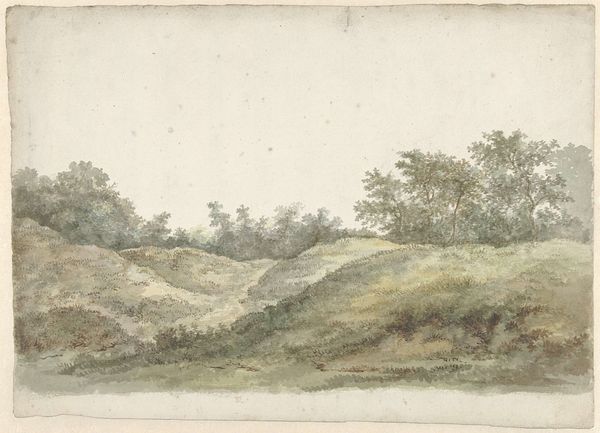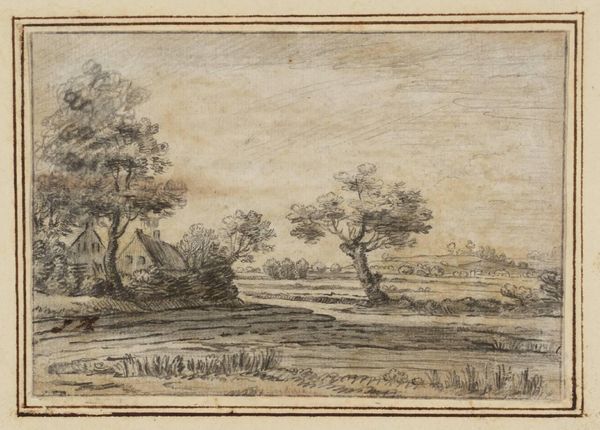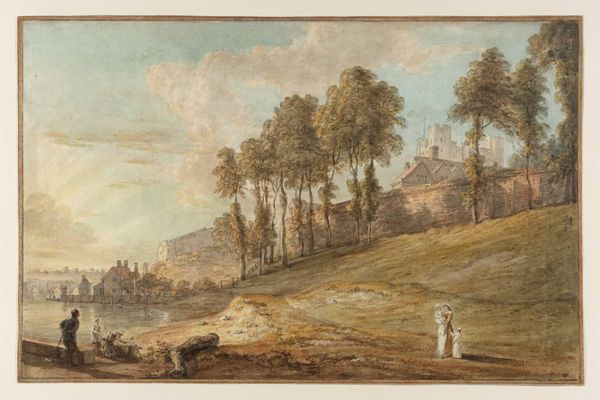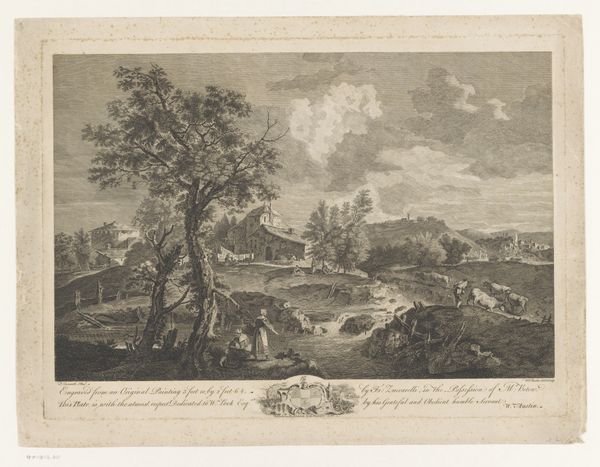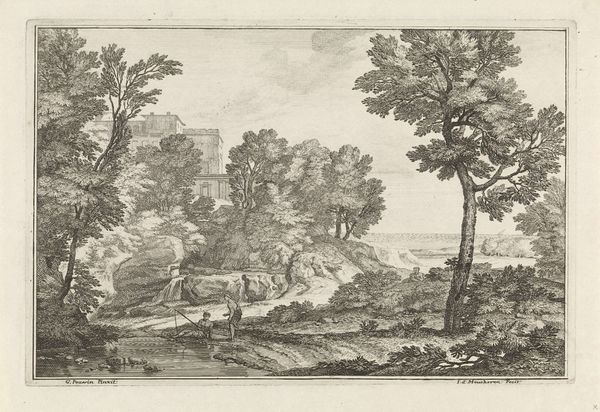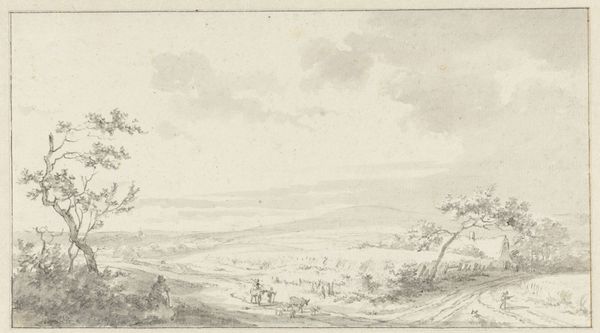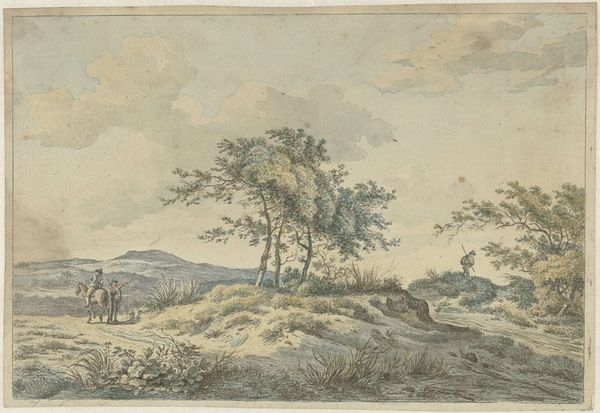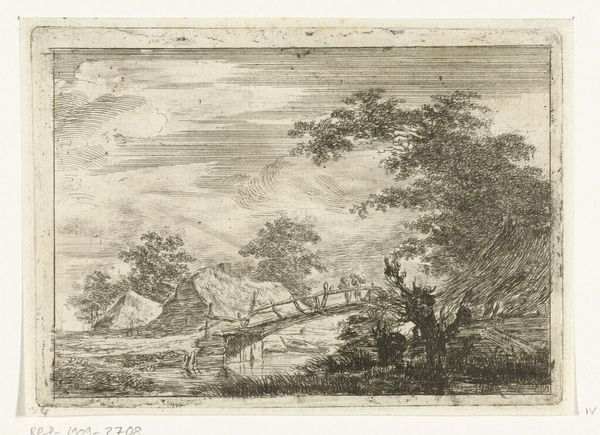
Dimensions: support: 244 x 539 mm
Copyright: CC-BY-NC-ND 4.0 DEED, Photo: Tate
Editor: Here we have Jonathan Skelton's "Part of Blackheath," undated, a watercolor piece held at the Tate. The muted palette and serene composition give it a tranquil, almost melancholic feel. What does it evoke for you? Curator: This work speaks volumes about the relationship between humans and the land. Blackheath, then as now, occupied a contested space between rural idyll and encroaching urban development. Skelton, consciously or not, reflects this tension. Editor: How so? Curator: Consider the lone tree, imposing yet confined to the edge. It could represent nature under pressure. The open landscape, while seemingly peaceful, is undeniably shaped by human activity, evidenced by the tracks visible in the dirt. Editor: That's a great point. I was so focused on the aesthetic, I missed the underlying commentary on land use and its social implications. Curator: Art always reflects power dynamics. Even a seemingly simple landscape can offer insights into the struggles embedded within our environment. Editor: I'll never look at a landscape the same way again!
